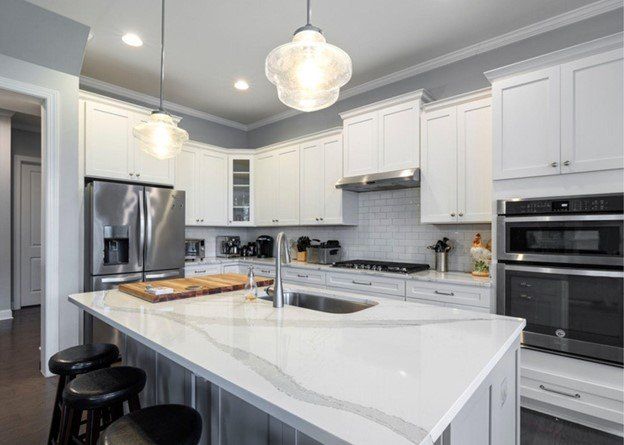Halifax Epoxy Flooring and Concrete Coatings
What Type of Epoxy Should be Used on Countertops?
When selecting an epoxy for your countertops, the options can seem endless. While a variety of color options (or combinations of colors - epoxy can even be crafted to resemble marble!) is one of the advantages of using epoxy on countertops, there are other options that are not simply a matter of personal taste.
The first consideration when selecting an epoxy for your countertops is whether you will be pouring brand new countertops or resurfacing existing countertops. Pouring brand new countertops can be a difficult job and, in most cases, is best left to professionals. An epoxy coating can be easily added over just about any existing countertop, however, completely changing both the look and functionality of the surface.
The first quality to look for in an epoxy coating is thickness. For countertops, the epoxy should be relatively thin. A thinner epoxy is much easier to pour, covers the surface more easily and more evenly, and is generally self-leveling. The thicker the epoxy, the more work you will have to do to make the surface perfectly smooth and level. Keep in mind that the texture and condition of the original countertops also affects the final surface - if your original countertop is very rough or if the seams are splitting, you should fill and smooth these imperfections as much as possible before pouring epoxy.
The time it takes an epoxy to cure is another important item to consider. Most countertops will require two coats of epoxy, and the quickest drying epoxies require between 4 and 6 hours to dry before a second coat can be applied. After the final coat, plan to wait a minimum of 3 or 4 days before using the countertop. Different epoxies have a wide range of times before they are fully cured - depending on the type of epoxy selected, you will need to wait between 7 and 30 days before subjecting the countertop to normal use.
The final item to consider is the location of the countertops to be coated with epoxy. If you are living in the home that the countertops are in, look for an epoxy with low odor and low VOC (volatile organic compound) emissions. All epoxies will produce some amount of odor and potentially harmful fumes, so make plans to either seal off the area until the fumes dissipate or to not be in the home any more than necessary until the epoxy dries. All epoxies are non-toxic once they are fully cured, but only certain ones are fully approved for surfaces that food will come into contact with. For outdoor applications, be sure that the epoxy you select is intended for outdoor use and is UV resistant.
A proper application of the proper epoxy can improve both the appearance and durability of the countertops in your home. Read the labels carefully and select the proper epoxy for your situation, and your new countertops will serve you well for years to come!
Still have questions or concerns?
Our epoxy specialists are here to help with all your epoxy coating needs!
FREE QUOTE
Contact Us
We will get back to you as soon as possible.
Please try again later.
FREE QUOTE

SERVICE AREA
Contact Us
- Mon - Sun
- -
Epoxy Halifax EpicFlooring
39 Westridge Dr, Halifax, NS, Canada
